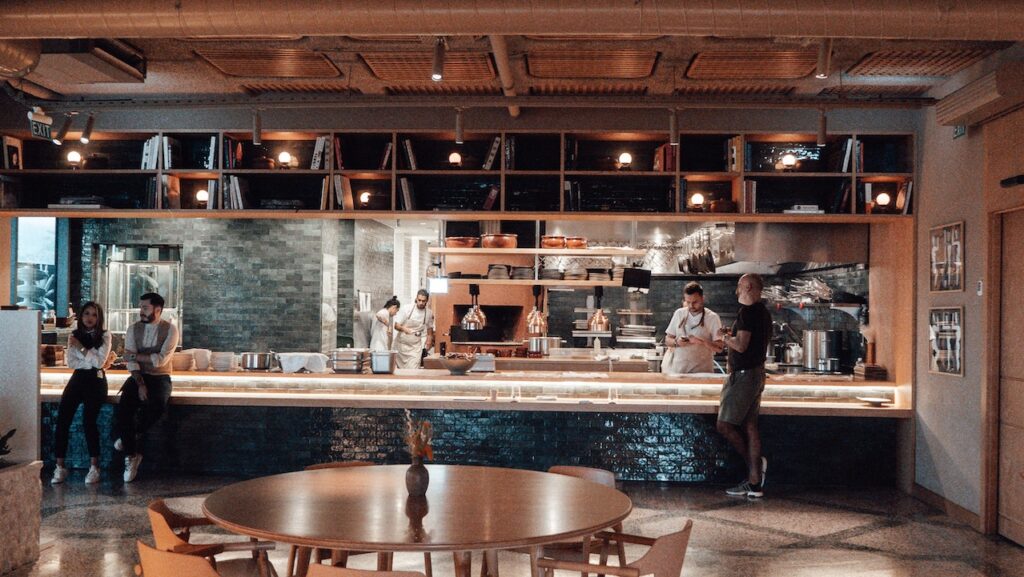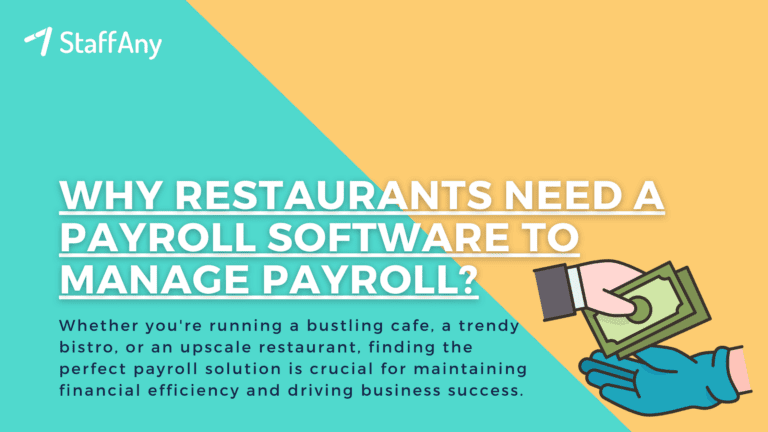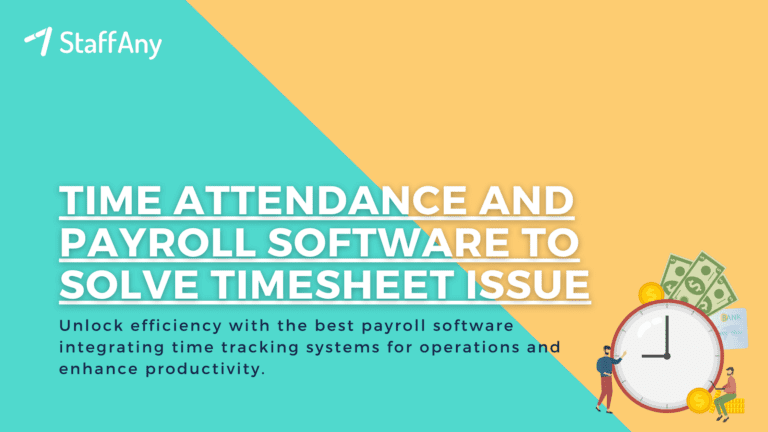As a restaurant owner, you face many challenges every day. From managing staff to sourcing ingredients, there is always something that requires your attention. One area that can be particularly challenging is risk management. However, having effective restaurant risk management strategies in place is essential to ensure your restaurant is prepared for any crisis that may arise.
In this article, we will explore restaurant risk management strategies to prepare your business for any crises that may arise. But before that, let’s find out the importance of having risk management in place for your restaurant!
The Importance of Having Risk Management Strategies

Effective risk management is an essential component of any successful business, including restaurant business. The food and beverage industry is highly competitive, with numerous challenges that can negatively impact a restaurant’s operations and financial performance. Here are some of the reasons why it is important having risk management strategies in place:
1. Protecting your Staff and Customers
Implementing risk management strategies can help protect your staff and customers from harm. By identifying and addressing potential risks, you can ensure that your restaurant is a safe and secure environment for everyone who enters it.
2. Reducing the Risk of Financial Losses
Disasters such as fires, floods, or accidents can be financially devastating for a restaurant. Having effective risk management strategies in place can help you minimise the impact of these events and reduce the risk of financial losses.
Read more: The Importance of Relationship Management with Customers
3. Ensuring Compliance with Regulations
Restaurants are subject to a range of regulations, including those related to food safety, health and safety, and employment law. Implementing risk management strategies can help ensure that your restaurant complies with these regulations, reducing the risk of fines, legal action, or reputational damage.
4. Improving your Reputation
A restaurant with a reputation for safety and reliability is more likely to attract and retain customers. Implementing risk management strategies can help improve your reputation by demonstrating your commitment to providing a safe and secure environment for your staff and customers.
5. Enhancing Business Continuity
Effective risk management strategies can help ensure that your restaurant can continue operating in the event of a crisis. By identifying and mitigating potential risks, developing contingency plans, and maintaining good communication, you can help ensure that your restaurant is able to weather any storm and continue to thrive.
Read more: The Importance of Human Resource Planning in Business
6. Enhance Decision-Making
Risk management provides businesses with valuable insights into potential risks and their potential impact. This information enables informed decision-making, as businesses can assess risks and weigh them against potential rewards. By considering risks during the decision-making process, businesses can make more sound and informed choices.
7. Stakeholder Confidence
Stakeholders, including investors, customers, employees, and partners, place trust in businesses to effectively manage risks. Demonstrating robust risk management strategies not only instills confidence in stakeholders but also enhances relationships with them. This can lead to increased investments, customer loyalty, employee satisfaction, and business opportunities.
8. Improved Resource Allocation
Risk management allows businesses to allocate resources effectively by identifying and prioritizing risks. By understanding potential risks and their potential impact, businesses can allocate resources appropriately to address high-priority risks, thereby optimizing resource utilization and minimizing waste.
Read more: 12 Employee Engagement Activities to Keep Your Staff Happy and Motivated
9. Competitive Advantage
Businesses that effectively manage risks have a competitive advantage over those that do not. Being able to demonstrate to clients, customers, and partners that risks are being proactively identified and managed enhances the credibility and trustworthiness of the business.
This can help attract new customers, retain existing clients, and differentiate the business from competitors.
10. Business Growth and Expansion
Risk management strategies support business growth and expansion by minimizing uncertainties and potential obstacles. By managing risks effectively, businesses can seize growth opportunities, expand into new markets, and make strategic investments with greater confidence.
In summary, having risk management strategies in place is essential for businesses as it allows them to proactively address potential risks, minimize financial losses, protect their reputation, make informed decisions, comply with regulations, ensure operational continuity, and gain a competitive advantage.
By effectively managing risks, businesses can thrive in an ever-changing business landscape and increase their chances of long-term success.
Read more: Understanding Manpower Planning and Its Importance in F&B
Effective Restaurant Risk Management Strategies To Employ

Now that we understand the importance of having risk management strategies in place, let’s explore some effective strategies that restaurant owners can employ to mitigate potential risks and crises.
From conducting regular risk assessments to providing staff training, here are eleven Restaurant Risk Management Checklist to help prepare your restaurant for any crisis.
1. Conduct a Risk Assessment
The first step in developing an effective risk management plan is to conduct a thorough risk assessment. This involves identifying potential risks to your restaurant, assessing the likelihood of each risk occurring, and determining the potential impact of each risk. Once you have identified the risks, you can develop strategies to mitigate them.
2. Train your Staff
Your staff is the frontline defence against potential risks in your restaurant. Ensuring they are properly trained in areas such as food safety, first aid, and fire safety is essential to minimise the impact of potential crises.
Read more: Top Recruitment Methods to Find the Perfect Hire
3. Follow Health and Safety Codes
Food poisoning outbreaks can be devastating for a restaurant. Implementing strict food safety protocols can help reduce the likelihood of these events occurring. This can include food service license issued by your local health department, regular cleaning and sanitising of all surfaces, monitoring the temperature of refrigerated and cooked foods, and ensuring all staff members are trained in safe food handling practices.
4. Have a Comprehensive Risk Management Plan
Having a restaurant risk management plan in place is essential to ensure your restaurant can respond quickly and effectively to any crisis. This plan should include procedures for responding to emergencies such as fires, floods, or accidents, as well as communication strategies for keeping staff and customers informed.
5. Maintain Proper Insurance Coverage
Having the right insurance coverage can help protect your restaurant from financial losses in the event of a crisis. This can include general liability insurance, property insurance, and workers’ compensation insurance.
6. Regularly Inspect your Restaurant
Regularly inspecting your restaurant for potential risks can help you identify and mitigate potential crises before they occur. This can include checking fire alarms, ensuring all safety equipment is in good working order, and addressing any potential safety hazards.
Read more: A Comprehensive Guide on Shift Work Schedule Management in the F&B Industry
7. Monitor your Finances
Managing your finances effectively is essential to ensure your restaurant can weather any financial crises that may arise. This can include maintaining accurate financial records, developing a budget, and regularly reviewing your financial statements.
8. Develop a Business Continuity Plan
A business continuity plan outlines procedures for ensuring your restaurant can continue operating in the event of a crisis. This can include identifying alternative suppliers, developing contingency plans for staffing, and having a backup plan for managing your finances.
9. Conduct Regular Staff Training
Regular staff training is essential to ensure all staff members are aware of potential risks and understand how to respond in the event of a crisis. This can include regular fire drills, first aid training, and customer service training.
Read more: The Importance of Time Management for Restaurants, Cafes, and Other F&B Businesses
10. Maintain Good Communication
Maintaining good communication is essential to ensure everyone in your restaurant is aware of potential risks and knows how to respond in the event of a crisis. This can include regular staff meetings, clear signage throughout your restaurant, and having an emergency communication plan in place.
11. Continuously Monitor and Update your Risk Management Plan
Your risk management plan should be an ongoing process, not a one-time event. Continuously monitoring and updating your plan can help ensure it remains effective and relevant. Regularly reviewing your plan and making adjustments as needed can help you stay ahead of potential risks and crises.
By employing these eleven restaurant risk management strategies, you can help ensure your restaurant is prepared for any crisis that may arise. Having effective risk management strategies in place can help protect your business, your staff, and your customers, and help ensure your long-term success.
Ready to implement effective restaurant risk management strategies in your business? Look no further than StaffAny’s management reporting software. Our real-time reports and analytics can help you identify potential risks and make data-driven decisions to mitigate them.
Sign up for StaffAny today to take control of your restaurant’s risk management and ensure its long-term success. Contact us to learn more!











